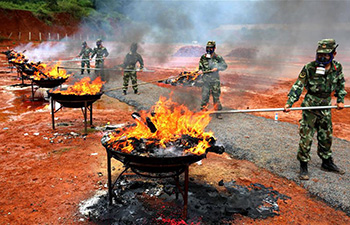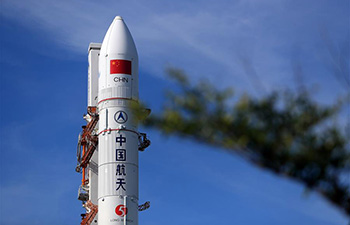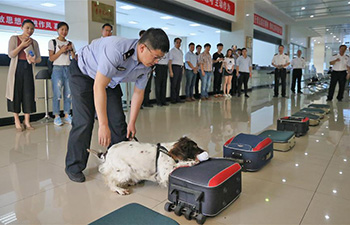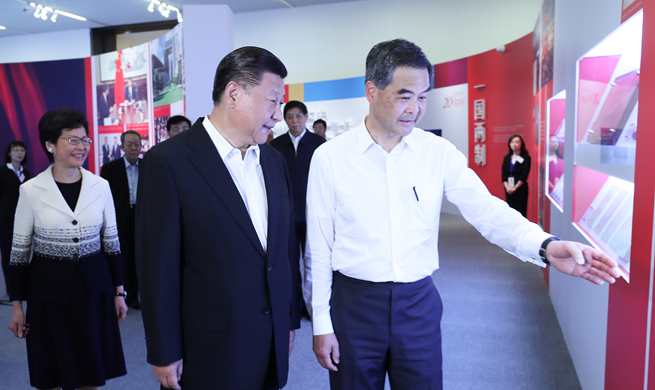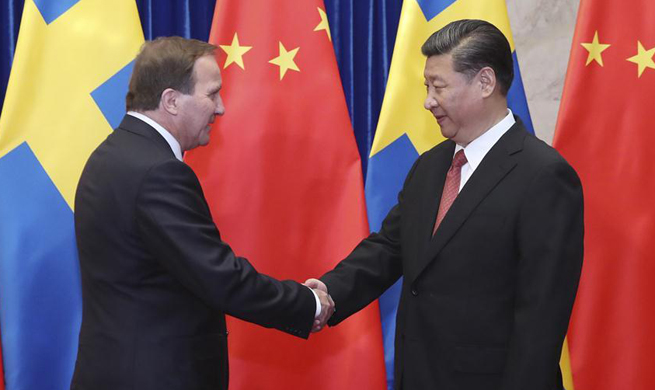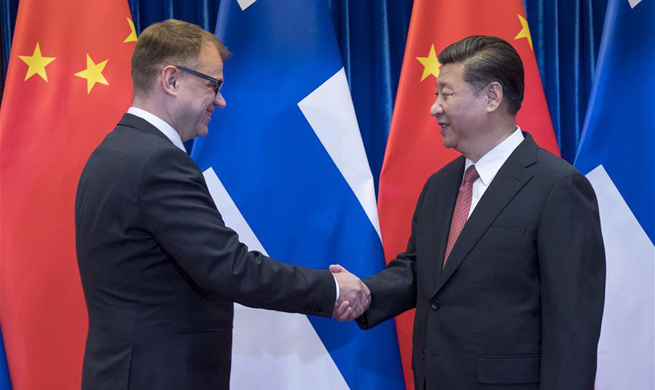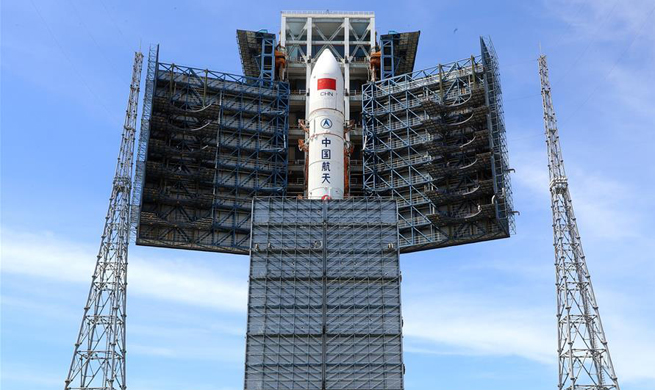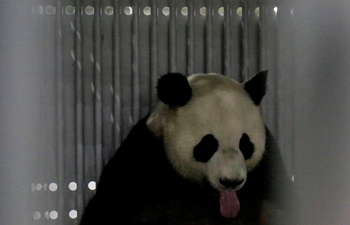DALIAN, June 26 (Xinhua) -- Klaus Schwab, founder and executive chairman of the World Economic Forum (WEF), on Monday applauded China's role in driving global economic growth and its commitment to globalization.
"China's growth is an incredible contribution to the global economy," Schwab told Xinhua ahead of the Annual Meeting of the New Champions 2017, also known as Summer Davos.
China's GDP registered a 6.9 percent year on year increase in the first quarter thanks to warming trade and robust consumption, which prompted a number of financial institutions, including the International Monetary Fund, to upgrade their forecast.
"The Chinese economy has surprised, again, many people as when we were in Tianjin a year ago and two years ago here, there were many skeptics," Schwab said, adding that he is optimistic for the global economy as a whole with many areas moving out of recession.
China has served as a major stabilizer and driving force for the world economy, contributing to more than 30 percent of growth during the past years, data showed.
Schwab believes the economy has become more forward-oriented during the past decade that featured with the Summer Davos. Established by the WEF in 2007, the forum is held each year in China, alternating between the port cities of Dalian and Tianjin.
"The meeting shows that China is not just a traditional economy based on manufacturing but has great potential to move very fast into the era of the fourth industrial revolution," Schwab said.
He also highlighted China's efforts to push forward globalization. "We are living in an inter-connected and inter-dependent world and we need globalization because our fate is interwoven."
Schwab called for a different form of globalization that can ensure dialogues in a multipolar world and rein in the widening gap between rich and poor. "We have to made globalization much more inclusive."
Striving to further integrate into the world economy, China is on a new course with the Belt and Road Initiative. A high-level meeting was held in Beijing last month to rally support for the initiative.
"The Belt and Road Initiative has great significance because it is a new approach to reach a new and open cooperation...and everybody can participate in a win-win situation as an equal partner," Schwab said.
From Tuesday to Thursday, around 1,500 politicians, officials,entrepreneurs, scholars, and media representatives from over 90 countries and regions will assemble in the city to discuss topics from inclusive growth to the new industrial revolution.
The meeting, themed "Achieving Inclusive Growth in the Fourth Industrial Revolution," will focus on how technology and policy innovations can accelerate a more inclusive style of economic growth that prioritizes meaningful job creation and sustainable development.
Premier Li Keqiang will address the opening ceremony on Tuesday.
Schwab founded the WEF in 1971, initially known as the European Management Forum. In 1987, the forum changed to the current name and sought to broaden its vision by focusing on international concerns.
China first sent a delegation to the meeting in 1979, with subsequent participation marked by an incremental and positive assertiveness.






